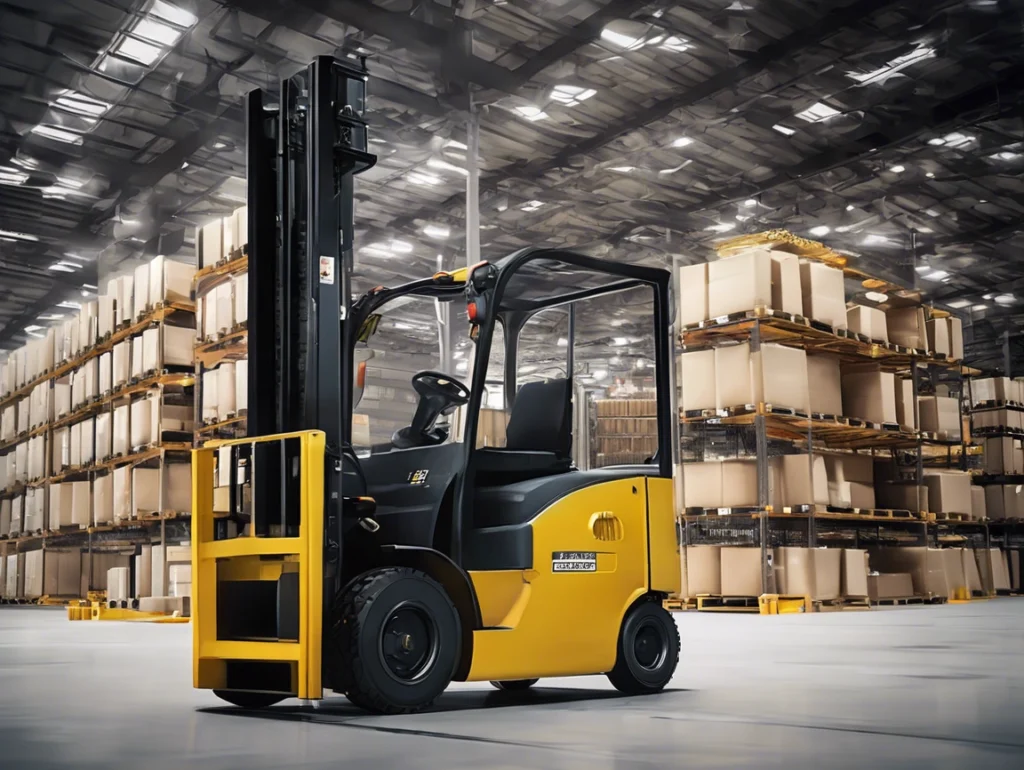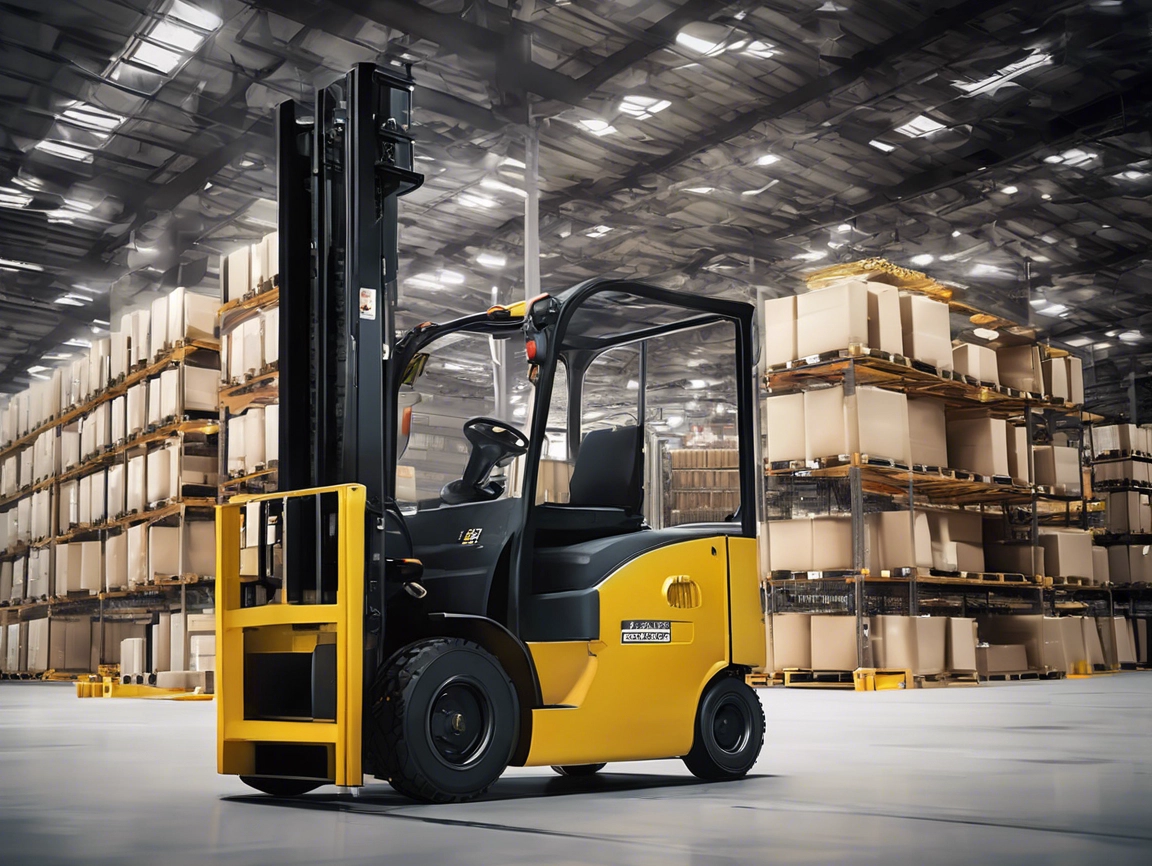5 Key Benefits of Lithium Forklift Batteries: Boost Efficiency and Reduce Costs
Introduction to Lithium Forklift Batteries
Lithium forklift batteries have emerged as a pivotal innovation in the material handling industry, offering considerable advantages over traditional lead-acid batteries. Characterized by their lightweight composition and enhanced energy density, lithium batteries present a modern solution to the operational demands of forklift operations. This advancement is increasingly becoming a standard as industries seek to improve productivity and efficiency in their warehousing and manufacturing processes.
One of the fundamental differences between lithium and lead-acid batteries is the charging mechanism. While lead-acid batteries typically require extended charging times and frequent maintenance, lithium batteries can be charged rapidly and are virtually maintenance-free. This key distinction not only translates to shorter downtime but also optimizes the overall workflow within a warehouse or distribution center.
The growing trend toward adopting lithium technology in forklift operations highlights a shift in industry standards. Businesses are recognizing that the initial investment in lithium batteries often leads to substantial long-term savings due to their longevity and reliability. Furthermore, lithium forklift batteries can withstand numerous charge cycles without significant degradation, offering an operational lifespan that can surpass conventional batteries by two to three times.
As sustainability becomes an increasing focus, the environmental advantages of lithium batteries also play a crucial role in their rising popularity. With a lower carbon footprint and reduced waste generation, organizations can meet their green initiatives more effectively by transitioning to lithium technology. This evolution is not just about enhancing operational efficiency; it is also about aligning with modern environmental standards and consumer preferences.
Thus, lithium forklift batteries present significant benefits that are reshaping how businesses approach material handling and efficiency. The subsequent sections will delve deeper into the specific advantages that lithium batteries offer, providing a comprehensive understanding of their impact in the industry.

Benefit 1: Enhanced Efficiency and Performance
The integration of lithium batteries into forklift operations has brought about significant improvements in efficiency and performance. One of the most notable advantages of lithium technology is the reduction in charging times. Unlike traditional lead-acid batteries that often require hours to recharge, lithium batteries can reach a full charge in approximately one to two hours. This rapid charging capability allows operators to minimize downtime, enabling forklifts to remain in operation for longer periods throughout the workday.
Furthermore, lithium batteries offer extended run times, which is crucial for high-demand environments. A single charge can power a forklift for an entire shift, allowing operators to maximize productivity without the need for frequent battery changes. For example, research conducted in various warehouse settings has shown that forklifts equipped with lithium batteries can operate up to 30% longer than those using traditional batteries, resulting in increased throughput and efficiency in material handling tasks.
Consistent power delivery is another key feature of lithium forklift batteries. Unlike lead-acid batteries, which experience voltage drops as they discharge, lithium batteries provide stable energy output throughout their usage cycle. This means that forklifts can maintain optimal performance levels, even as the battery depletes. The consistent power allows for smoother operation, reducing the risk of fluctuations that might impact handling precision and overall safety.
In sum, the adoption of lithium batteries not only streamlines operations but also fosters an environment where efficiency is continuously prioritized. By significantly reducing charging times, extending run times, and ensuring consistent power delivery, lithium batteries empower businesses to achieve higher productivity levels while optimizing resource utilization.
Cost Savings on Maintenance
Lithium forklift batteries are known for their substantial cost savings on maintenance when compared to traditional lead-acid batteries. One of the primary advantages lies in the significantly lower upkeep requirements. Traditional batteries often require routine maintenance tasks such as watering, equalization charging, and inspection for corrosion, all of which demand time, labor, and additional resources. In contrast, lithium batteries operate with a sealed design, eliminating the need for watering, resulting in a marked reduction in the time and effort spent on maintenance.
Additionally, the absence of corrosive elements and leakage in lithium batteries contributes to enhanced reliability and lower maintenance demands. This inherently minimizes the likelihood of operational disruptions typically associated with traditional battery systems. With traditional lead-acid batteries, frequent checks and maintenance are necessary to ensure optimal functionality and safety. The reduced maintenance burden of lithium batteries not only saves time but also allows operational personnel to focus on more critical tasks, thereby boosting overall productivity.
Another noteworthy aspect is the reduced wear on forklift components. Traditional batteries can generate significant vibrations and require frequent replacements of components due to wear and tear. In contrast, lithium batteries tend to operate more smoothly and efficiently, leading to less strain on the forklift’s electrical and mechanical systems. This reduced wear translates into fewer repairs and lower costs for replacement parts over the forklift’s lifecycle.
When these factors are combined, the total cost of ownership for lithium-powered forklifts becomes considerably more favorable. The initial investment in a lithium battery may be higher, but the long-term savings derived from lower maintenance needs and extended forklift longevity quickly outweigh the upfront costs. By choosing lithium forklift batteries, businesses can enjoy a markedly reduced maintenance burden, resulting in significant overall financial benefits.
Improved Safety Features
The implementation of lithium forklift batteries comes with a suite of safety advantages that greatly enhance the working environment for operators. One of the primary features contributing to these improvements is the built-in battery management systems (BMS). These sophisticated systems continuously monitor battery health, temperature, and overall conditions, ensuring that the batteries operate within safe parameters. This real-time data not only extends the lifespan of the batteries but also helps prevent potential hazards related to battery failure.
Another significant advantage of lithium forklift batteries is their reduced risk of leaks. Unlike traditional lead-acid batteries, which are prone to acid leaks and spills, lithium batteries utilize sealed cells that minimize the likelihood of electrolyte leakage. This inherent safety feature is crucial in maintaining a safe workspace, particularly in environments where cleanliness and environmental compliance are paramount. Furthermore, these sealed cells mitigate the risk of corrosion and damage caused by acid exposure, thereby increasing the longevity and reliability of the equipment used.
Additionally, lithium forklift batteries come with a lower chance of thermal runaway, a phenomenon where batteries overheat excessively and can potentially lead to fires or explosions. The thermal management systems integrated into lithium batteries help disperse heat effectively, thereby maintaining optimal temperatures. This characteristic significantly enhances safety and mitigates risks associated with overheating, making lithium batteries a safer alternative compared to their lead-acid counterparts.
In summary, the safety features of lithium forklift batteries, including built-in battery management systems, reduced risk of leaks, and lower chances of thermal runaway, play a crucial role in ensuring a safer operational environment. These advancements not only protect the operators but also contribute to more efficient and reliable material handling processes.
Environmental Sustainability
The transition to lithium forklift batteries contributes significantly to environmental sustainability, harnessing a range of advantages that align with contemporary corporate responsibility frameworks. One of the primary benefits of lithium batteries is their extended lifespan compared to traditional lead-acid batteries. Typically, lithium batteries can last up to twice as long, reducing the frequency of replacements. This durability not only lowers the sheer volume of waste generated from discarded batteries but also lessens the environmental impact associated with the manufacturing and transportation of replacement units.
Furthermore, lithium-ion technology allows for unparalleled recyclability. Many manufacturers have established programs aimed at recovering valuable materials from spent lithium batteries. The recycling process is designed to reclaim lithium, cobalt, and nickel, which can then be reintroduced into the production cycle. This closed-loop system not only minimizes the demand for virgin resources but also contributes to a circular economy, enhancing the overall sustainability of battery usage in the materials handling sector.
In terms of operational emissions, lithium forklift batteries emit fewer greenhouse gases when compared to their lead-acid counterparts. Their improved energy efficiency translates to lower carbon footprints during use. Furthermore, lithium batteries operate efficiently across diverse temperature ranges, which helps optimize energy consumption under various loading conditions, resulting in reduced energy waste in warehouses or distribution centers.
Adopting lithium battery technology also aligns seamlessly with corporate sustainability goals and regulatory requirements. Many organizations are increasingly held accountable to environmental standards and customer expectations concerning eco-friendly practices. Switching to lithium batteries not only advances a company’s green credentials but also provides a competitive edge in an era when sustainability is paramount. Collectively, these factors underscore the critical role lithium forklift batteries play in promoting environmental sustainability and meeting contemporary business challenges.
Benefit 5: Increased Fleet Flexibility
In the constantly evolving landscape of logistics and warehousing, the ability to adapt is crucial for optimizing operations. One significant advantage of lithium forklift batteries is their inherent flexibility, granting businesses the capability to manage their forklift fleets more efficiently. This flexibility manifests in several ways, particularly through the implementation of opportunity charging.
Unlike traditional lead-acid batteries, lithium batteries can be charged quickly and at various times throughout the operational day. This feature, known as opportunity charging, allows operators to plug in their forklifts during breaks or between shifts, minimizing downtime and maximizing productivity. As a result, businesses can keep their operations running uninterrupted, leading to an overall enhancement in workflow efficiency.
Additionally, lithium batteries have a longer operational life and require less maintenance compared to their lead-acid counterparts. This longevity not only reduces the frequency and cost of battery replacements but also streamlines the management of the forklift fleet. Companies can benefit from having fewer batteries on hand, effectively optimizing their fleet size to match operational demands without compromising performance.
Moreover, the lightweight nature of lithium batteries translates to better energy efficiency for forklifts. With reduced weight, these vehicles can carry heavier loads with less energy, allowing for an expansion in their operational range. This efficiency further contributes to fleet flexibility, as businesses can adjust their operational capacity in response to fluctuating demand without the need for extensive equipment overhauls.
As a result, investing in lithium forklift batteries equips businesses with the necessary tools to ensure that their logistics and warehousing operations remain agile and capable of adapting to changing market conditions. By leveraging the increased flexibility offered by these advanced battery systems, businesses can position themselves for sustained success in the competitive landscape of material handling.
Conclusion: Transitioning to Lithium Forklift Batteries
In today’s competitive business landscape, the shift towards lithium forklift batteries emerges as a strategic initiative to enhance operational efficiency and reduce long-term costs. Throughout this discussion, we have identified several key advantages these batteries offer, including improved energy efficiency, faster charging times, reduced maintenance requirements, a longer lifespan, and environmental benefits. These factors collectively contribute to a more streamlined operation while minimizing the overall impact on budget and resources.
For businesses currently utilizing traditional lead-acid batteries, the transition to lithium technology may seem daunting. However, making this switch can lead to significant financial savings by decreasing downtime and increasing productivity. The initial investment in lithium forklift batteries is often offset by reduced operational costs over time. As such, companies are encouraged to conduct a thorough cost-benefit analysis to assess the potential for increased efficiency and cost savings through this transition.
Moreover, the environmental advantages presented by lithium batteries cannot be overlooked. As companies increasingly prioritize sustainability, adopting lithium solutions aligns with green initiatives and showcases a commitment to responsible operations. This not only enhances corporate reputation but also meets growing consumer expectations for eco-friendly practices.
Ultimately, for those contemplating the transition, it is advisable to explore various lithium battery options and consult with battery system providers to ensure the selected solution meets specific operational needs. The valuable insights gained during this exploration will aid in making an informed decision regarding the investment in lithium forklift batteries. As the industry continues to evolve, embracing this technology signifies a forward-thinking approach that prioritizes efficiency and cost-effectiveness in operations.
